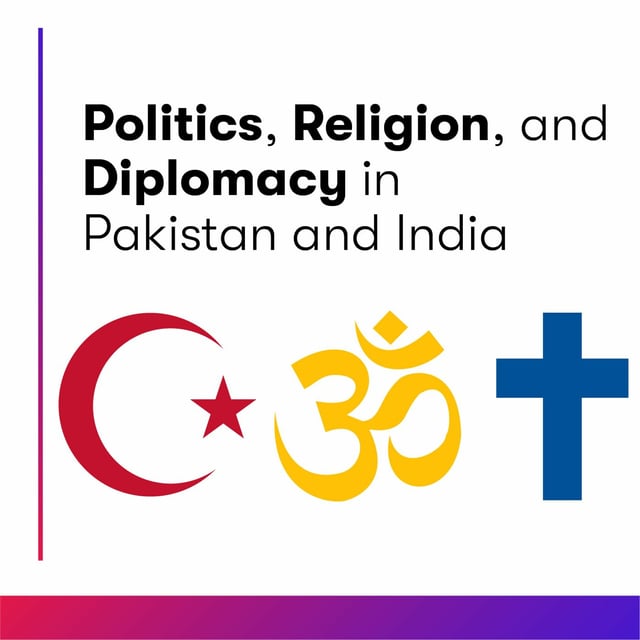
Big World
Politics, Religion, and Diplomacy in Pakistan and India

Together, Pakistan and India account for nearly a quarter of the world’s population. The two nations and their peoples also have made innumerable contributions to the world’s great religions, history, and culture. In this episode of Big World, SIS professor Akbar Ahmed joins us to talk about the interfaith dynamics within and between India and Pakistan; their global roles and influence; and his own influential career as a diplomat, scholar, and author.
Ambassador Ahmed briefly explains the origins of his career, including how an experience as a child influenced both his life and his future commitment to interfaith dialogue (3:25). He discusses his three decades of experience in the Pakistani civil service and the impact of that time on his views about peace (7:10). Ahmed gives his thoughts on the state of Pakistan’s democracy and his hopes for the nation’s future (9:41).
Reflecting on his arrival in the US and Washington, DC, the week before September 11, 2001, Ahmed talks about how and why the tragic events of that day impressed upon him the importance of interfaith dialogue (11:56). He also answers the question: was there ever a moment, post-9/11, in which he was afraid to be a Muslim living in America (18:35)?
What kind of productive interfaith dialogues are happening within India (21:33)? Can interfaith dialogue help ease tensions between India and Pakistan (24:41)? Is Hindu nationalism, at its core, divorced from the actual tenets of Hinduism (26:36)—and are extremist versions of religions always similarly out of step with their own foundational beliefs? Ambassador Ahmed answers these questions while also explaining how he got his students heavily involved in the various projects he’s produced over the years (31:29). Finally, what does he think will be his legacy (34:54)?
During our “Take Five” segment, Ambassador Ahmed shares the five things he believes people and nations can do to improve interfaith relations inside and outside of their borders (29:05).

00:00:00
00:00:01
0 Plays
1 year agoTogether, Pakistan and India account for nearly a quarter of the world’s population. The two nations and their peoples also have made innumerable contributions to the world’s great religions, history, and culture. In this episode of Big World, SIS professor Akbar Ahmed joins us to talk about the interfaith dynamics within and between India and Pakistan; their global roles and influence; and his own influential career as a diplomat, scholar, and author.
Ambassador Ahmed briefly explains the origins of his career, including how an experience as a child influenced both his life and his future commitment to interfaith dialogue (3:25). He discusses his three decades of experience in the Pakistani civil service and the impact of that time on his views about peace (7:10). Ahmed gives his thoughts on the state of Pakistan’s democracy and his hopes for the nation’s future (9:41).
Reflecting on his arrival in the US and Washington, DC, the week before September 11, 2001, Ahmed talks about how and why the tragic events of that day impressed upon him the importance of interfaith dialogue (11:56). He also answers the question: was there ever a moment, post-9/11, in which he was afraid to be a Muslim living in America (18:35)?
What kind of productive interfaith dialogues are happening within India (21:33)? Can interfaith dialogue help ease tensions between India and Pakistan (24:41)? Is Hindu nationalism, at its core, divorced from the actual tenets of Hinduism (26:36)—and are extremist versions of religions always similarly out of step with their own foundational beliefs? Ambassador Ahmed answers these questions while also explaining how he got his students heavily involved in the various projects he’s produced over the years (31:29). Finally, what does he think will be his legacy (34:54)?
During our “Take Five” segment, Ambassador Ahmed shares the five things he believes people and nations can do to improve interfaith relations inside and outside of their borders (29:05).
Recommended












